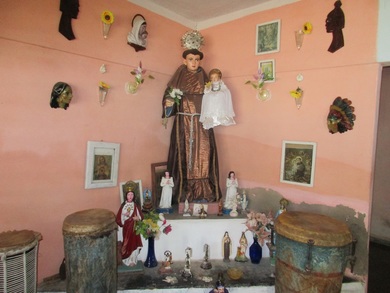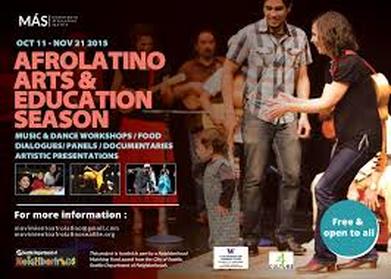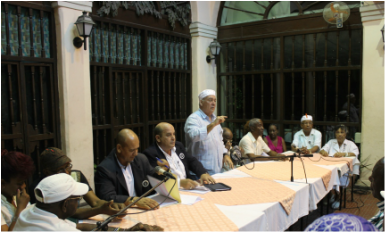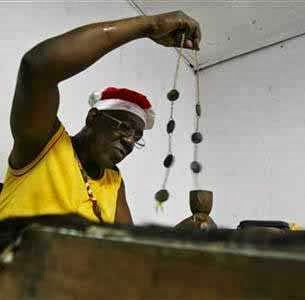Why isn't it easier?

Also contributing to the insider vs. outsider mentality is the fact that the Lucumi religion is one that functions in large part via initiations. Aleyos, or "outsiders," don't have access to the "secrets" of the religion, because there's no reason for them to know. What would they do with the information if they had it? Without the aché that comes from initiation, the information is useless. To know just for the sake of curiosity is pointless. Olorishas are careful to not give too much information to strangers, because the folk wisdom of our proverbs continually warn us not to give away too freely what we know. We can never be sure how other people will use the knowledge they get from us and, if they have bad intentions, we can do harm by sharing what we know with them. There's a sense that the religion is meant to be shared by those who have "made Ocha," or who have been crowned in the religion. Aleyos can participate in certain kinds of activities, and can also establish a relationship with a godparent, going for consultas or looking for remedies to specific problems. But to participate in a kariocha ceremony (full initiation), only those who have been through the ceremony themselves can take part. If you haven't experienced it, you aren't allowed to know what happens or how the ceremony is done. These customs create another layer of secrecy around around the religion for those who want to know more, but can't find any doors open to them.

Adding to the confusion, there are various ways of worshipping the Orichas, and practitioners from different traditions don't always agree on how things are done. Whether the person made Ocha in Cuba or Ifa in Africa, whether they identify as traditional African or as a New World variation, there will be differences in their ways of thinking. Brazil, Haiti, Jamaica and other Caribbean-basin countries also have their practices, which sometimes resemble and sometimes differ radically from the way Lucumi practitioners do things. Some people incorporate Spiritism into their practices, others don't. Even among those who identify as Lucumí, there will be disagreements and differences about how things are done in one rama (lineage) versus another. There's common ground, but also a lot of gray areas that confuse people who want to understand what the religion is all about. Most people will ultimately fall back on the line, "This is what I learned from my godparent, so this is how I do things." And, when you ask a question, many will tell you: "Ask your godparent." If you don't have a godparent, you don't know where to begin.

The best advice for newcomers is to be patient. Keep your eyes and ears open. Send your intentions out into the universe. Talk to people you meet about your interest in the religion. When you least expect it, you might find someone who can help you. Use care if you're going online to search for a spiritual guide. You might meet helpful and kind people on line, or you might meet a hustler. If you live in a place with a lot of cultural events, attend those that have to do with African and Afro-Caribbean music and art. If you can take a class on African or Afro-Caribbean culture, again, you might meet someone. The point is you never know where you'll find the person who can help you. It might take years, and you have to be patient. If you're able to go to Cuba, you can speed up the process because it's easy to find people there in the religion. However, unless you know the culture well, speak Spanish, and have connections to people you trust, you can also open yourself up to fraud. There's no easy path if you don't know where the first step is, but you need to keep looking without letting yourself become frustrated in the process.
Take Your Time

Once you receive your elekes (beaded necklaces), warriors, or an adimú oricha, you have a godparent. The person who gave you those things has some responsibility to guide you and help you, at least as far as that particular ceremony is concerned. The godparent needs to tell you how to take care of your elekes or warriors, how to attend to them, and explain what your responsibilities are. If you have a problem and need a consulta, the godparent should be willing to do one for you or recommend someone to you. If you need to do ebo to solve your problem, your godparent should help you with that. However, you can't realistically expect the godparent to be available to you around the clock for as many hours as you want to take up with your problems. If you constantly call or drop by with questions and problems, the godparent might get annoyed. Most godparents work full time jobs, have families to take care of, and they have other obligations to other godchildren. And, sometimes they just need to disconnect and have time to themselves. Anyone who does consultas and helps people solve problems needs time to recover from the emotional, mental and physical exhaustion that work causes. Very often, godchildren become impatient because the godparent isn't available or willing to talk about the religion all the time. Or, the godparent puts off answering their questions, or says "that's something you don't need to know now." Godparents don't always give the answer the godchild wants or expects. It's important to give the relationship time to develop and mellow, so that learning takes place gradually and slowly, over a period of time. As trust develops, so will communication. Before you make Ocha, if that turns out to be your path, make sure you know the person you've chosen as godparent very well. Once you've been crowned, the relationship between godparent and godchild is for life. There's nothing sadder than a new initiate who discovers, too late, that they don't get along well with the godparent. Some people do argue and separate, but that usually causes terrible difficulties for the godchild. You can avoid trauma by taking time to get to know the godparent well, and your patience will pay off.
Have realistic expectations, learn to deal with frustration and setbacks, be persistent and have faith. Although you can't always see what's around the next curve in the road, you can ask the Orishas to guide you in the direction you need to go. If you are meant to make Ocha, you will. And if Ocha is not for you, you'll know to take another path before you commit your time, money and energy to a religion that doesn't fit your needs.







 RSS Feed
RSS Feed
